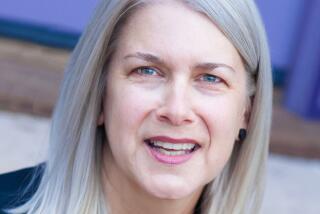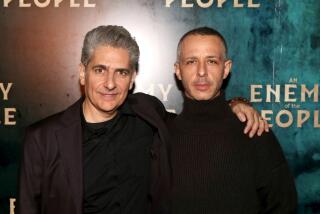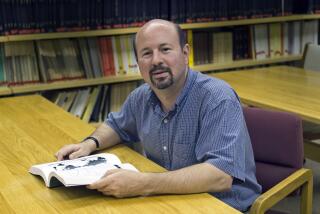Police spying on eco-activists causes some soul searching in Britain
He was the enemy within the so-called enemy within, until the guilt and strain of living a double life drove him out of both worlds.
Mark Kennedy, working for Scotland Yard, spent seven years undercover in Britain’s militant environmental movement, pretending to be a true believer while collecting intelligence on the real ones.
He let his hair grow, sported a goatee and wore hoops in his ears and tattoos on his arms. He joined in protests across Europe. Though not necessarily at his instigation, scores of his unsuspecting fellow activists were arrested at demonstrations and other events in Britain during his time sub rosa.
But something went wrong along the way, or right, depending on your point of view. Kennedy grew close to the people he was spying on; fell in love with an activist, was stricken with guilt over his subterfuge and eventually dropped out of both the police force and the eco movement.
His change of heart culminated this month at a trial here in London of six eco activists on charges of conspiracy to commit aggravated trespass. Full of remorse, Kennedy, who had not been called to testify by prosecutors, offered to instead supply testimony to help exonerate the people he once worked hard to expose as suspected extremists bent on destroying property and even committing violence in their campaign against climate change. The trial collapsed.
The tale of the covert cop who “went rogue” — and who slept with at least two of his targets — has riveted this country for days. More undercover officers planted as moles in the climate-change movement have been exposed both by the news media and allegedly by Kennedy, including one who married an activist and fathered two children.
But beyond lapping up juicy details of domestic espionage, Britons have been forced to reexamine themselves in light of the scandal, to reconcile what the police did in their name with what they expect of a free and liberal society with an honorable tradition of political dissent. Was it only Kennedy’s mirror that had two faces?
The man at the center of the storm is now in the United States, staying underground because he says he fears his life is in danger, both from the activists he deceived and the superiors he disappointed.
Last weekend, Kennedy told (or more likely sold) his story to the Mail on Sunday, one of Britain’s most popular tabloids, whose interviewer was surprised by what she found.
Gone were the long hair, scruffy face and “grungy eco-warrior outfit of torn jeans and grubby T-shirt,” the reporter wrote. Instead, Kennedy, 41, looked almost catalogue-model handsome in a crisp shirt, pressed trousers and a designer sweater.
Kennedy went by the alias Mark Stone during his years burrowing into the environmental movement on special assignment for Scotland Yard and one of Britain’s murkier law enforcement agencies dealing with domestic intelligence. Climate-change activists nicknamed him “Flash” because he frequently gave them the money to pay court fines and owned a van that he used to ferry activists to protests.
He would disappear mysteriously for short periods. But he attributed the absences to his work as a “freelance climber” and drug courier.
The Guardian newspaper reported that Kennedy attended meetings or protests with ecological and anti-globalization groups in 22 countries, traveling on a fake passport. He boasted to the Mail on Sunday that he was “at the heart of a very sensitive operation,” whose information sometimes went directly to the desk of the prime minister.
But somewhere along the line, Kennedy’s sympathies began to shift. He diligently kept informing his police handlers about the movement’s plans and activities, but increasingly saw his targets as his friends.
And lovers.
Kennedy struck up sexual relationships with at least two female activists, despite being married with children, a fact he kept hidden as part of his “legend,” or cover story.
“I am the first one to hold up my hands and say, ‘Yes, that was wrong,’” he said. “I crossed the line.”
He angrily rejects accusations that he used sex to glean intelligence, saying he “fell deeply in love with the second woman.” While on vacation with her last summer, she discovered his true identity and alerted other activists.
By then, Kennedy had already left the movement and the police, full of conflicted feelings and also concern that his cover was on the verge of being blown. But in October, he agreed to one last tense meeting with the activists, who confronted him and spoke bitterly of being betrayed.
His life as Mark Stone was over. But the messiness has only just begun.
Activists accuse Kennedy of having acted as not just an ordinary campaigner but an agent provocateur. His former police bosses are angry because he allegedly outed other moles still on assignment Officials in other nations where Kennedy attended protests have raised questions about what a British domestic intelligence operative was doing in their countries.
Such undercover operations are now the subject of three independent investigations here in Britain, where people are left to ask whether such infiltration of the environmental movement — often noisy and rowdy but mostly harmless, with the exception of militant animal-rights groups — is necessary or desirable.
Already accustomed to being under constant surveillance by cameras in public spaces, do Britons want to be spied on in new and unsavory ways? Is there still space for political dissent and protests in a country where suffragettes famously fought for the right of women to vote by chaining themselves to railings and peace activists set up camp at a nuclear missile storage site outside London for 19 years, from 1981 to 2000?
“One expects there to be undercover police on serious operations to investigate serious crime,” Mike Schwarz, the lawyer for the eco-activists whose trial fell apart this month, told the Guardian. The six men were accused of preparing to trespass on a power plant. “This was quite the opposite. This was civil disobedience, which has a long history in this country and should be protected.”
Kennedy himself has no answers, only doubt and regret for his actions.
“I don’t think the police are the good guys and the activists are bad, or vice versa. Both sides did good things and bad things,” he told the Mail on Sunday.
About those he spied on, Kennedy said, “I was embedded into a group of people for nearly a decade. They became my friends. They supported me, and they loved me. All I can do now is tell the truth.”
More to Read
Start your day right
Sign up for Essential California for news, features and recommendations from the L.A. Times and beyond in your inbox six days a week.
You may occasionally receive promotional content from the Los Angeles Times.







